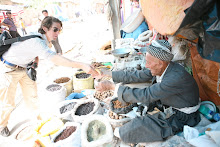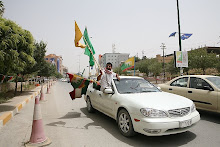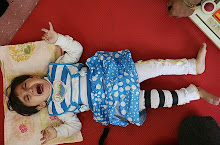On the 3rd October Syrian troops attempting to
regain control of the Alshmal gate along the border with Turkey shelled the area, hitting the nearby Turkish
town of Akcakele. They killed 5 members of the same family and wounded others.
The Syrians, desperate to quell the steady stream of weapons
and aid coming through the open borders have been trying for some time to
retake this area in Idlib province, but with no success. This attack was an escalation of the methods being used, and a sign of their increased frustration in the region.
Turkey retaliated, and using their radar system pinpointed the origin of the shells destroying artillery emplacements and killing a number of syrian soldiers.
While the Syrian government denies targeting the village,
and voiced sympathy for the dead, there is no doubt it was a suitably
aggressive move for Turkey, and Erdogan retaliated as many Turks hoped he would.
In the past many have been upset by his failure to act
following skirmishes along the border, such as the downing of a Turkish plane in
June and other shootings, so domestically this was a popular move.
And it is domestically that this will have the biggest
impact, for soon after the bombing, the Turkish government met to discuss what
actions it would take, and quickly gave the military the right to deploy troops
to other countries.
Erdogan has said that by no means does this amount to a declaration
of war, saying it is merely a sign that he will not be complacent or accept such 'mistakes', but what it
does do, very significantly, is allow him to strike at PKK bases inside Syria, (as
well as continuing to attack Kurdish bases in N.Iraq)
This is relevant for 2 reasons. First of all it is imperative
for the Turks that they counter the rise of Kurdish autonomy, especially after
their growing power in N. Iraq. One of the things that Turkey is most afraid of
is the rise of the Kurds in the wake of Assad’s downfall, having already armed
them heavily to use as a militia against the FSA.
Just yesterday in fact the PKK yesterday set up road blocks near the
N.Western town of Afrin to hold it for the government, and already we have seen
them attacking the FSA Farouk brigade in Idlib.
Secondly it is well known that Erdogan hopes to change the
Turkish political system to a presidential or semi-presidential one. He is
holding presidential elections in 2013 (with himself running as president) but
to do so he needs the support of the ultra nationalist, anti kurdish party who
hold a crucial 52 seats in parliament. Appeasing their desire to attack Kurdish
bases will go a long way to getting this approval.
And so today’s move is not so much about how Turkey chooses
to deal with the immediate Syrian crisis on it’s border (it will never attack
without the full backing of NATO, nor without a long term solution in mind) but
it does show that it is willing (while international eyes are turned in other
directions) to deal with the Kurdish issue in a far more permanent and
aggressive way.
Expect to see attacks on Kurdish bases rise.















































No comments:
Post a Comment